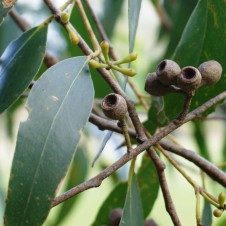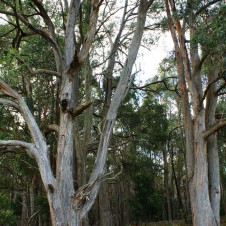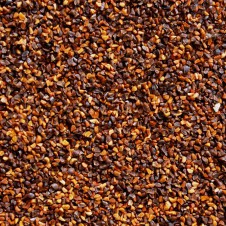General Description: Usually a tall, straight tree with spreading crown, to 50 m tall, but smaller and more-branched on poorer soils. Bark brown, fibrous and fissured, persistent to smaller branches.
Flowers and Fruit: Produces profuse white-cream flowers from December to February. Wineglass-shaped, fruit is often flared slightly near rim, 6-10 mm long, disc sloping steeply inward; valves 3-4 and is the only Stringybark with the valves recessed well below rim.
Site Preference and Tolerances: Extremely variable and includes skeletal soils on exposed, north-west facing slopes, sandy soils in undulating lowlands and deep, loamy soils of wet mountain hillsides. One of the more fire-resistant eucalypts because it has a lignotuber which regenerates readily after fire.
Life Span: Long-lived (80+ years)
Wildlife Value: Koalas eat the leaves. Attractive to nectar-feeding birds, insects and seed and insect-eating birds, for example Rosellas. Sitellas and treecreepers feed off the bark of Stringybarks finding large quantities of ants. Eucalypt blossoms provide crucial nectar for honeyeaters and lorikeets.
Other Values and Uses: Produces aversatile timber which is suitable for sawmilling into a range of products. Used in general construction including house building, joinery, flooring, furniture and interior finish and also for posts, poles and veneer wood. Firewood is of moderate value. Aborigines used the brittle outer bark by making it into a powder (tinder) for starting fires. The inner bark was made into coarse string for bags and nets for fishing. It is an attractive shade tree and makes a good tall component for windbreaks.
Other Common Names: Messmate
Germination Information: Can be propagated easily from seed and will direct seed well if weeds are controlled. Usually germinates in 2-5 weeks.



